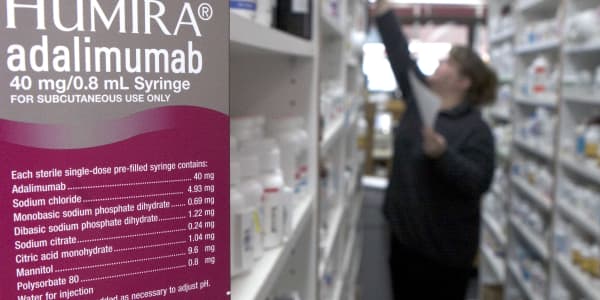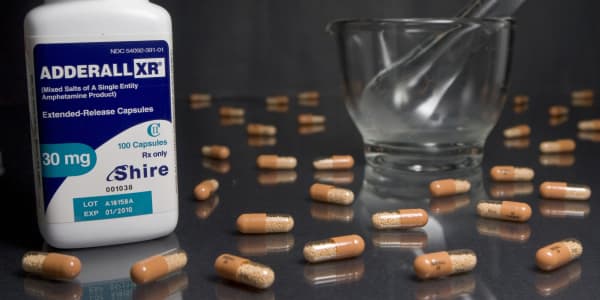Saturday Night Live is on it.
The show came up with a hilarious skit last May about Amazon's Echo voice assistant partnering with the AARP, a group that represents the interests of people over 50, for a new "silver" device that responds to any name remotely close to Alexa.
Now CNBC has learned that Amazon has in fact been meeting with the AARP since 2015 to discuss potential collaborations and share research, and it is interested in designing technology for aging populations.
Amazon has been very quiet about its plans to develop technologies for aging populations, as well as its health ambitions, but its vice president Babak Parviz spoke about both topics at a very rare public appearance last month.
"Something...we've been building for some period of time and we deeply care about... relates to what happens to older people," said Parviz, the company's vice president of special projects, at an event hosted by health marketing firm Klick Health.
"We have looked at the older population in the context of health... and we know this group has a lot of issues and unmet needs," he continued.
For consumer technology companies like Amazon, Apple and Alphabet, meeting the needs of aging Baby Boomers is key to retaining market dominance. It's also huge potential market. A report from 2016 found that the market for technology to assist aging adults is expected to grow from $2 billion to more than $30 billion within several years, with more people opting to age at home or "in place."
At the event, which featured Michelle Obama as a keynote speaker, Parviz went on to describe how despite the "exponential growth" in connected, computational devices, elderly people are still getting "lonelier and lonelier."
He stressed the need for "radical solutions" to rectify this problem.
Parviz has a background in medical technology, and CNBC reported last summer that he runs a skunkworks lab dedicated to opportunities in the space including health applications for Amazon Alexa, electronic medical records and telemedicine. The team has been referred to as Grand Challenge and 1492. Parviz joined Amazon in 2014 from Google X, the group responsible for futuristic projects. He's best known as the creator of Google Glass.
The AARP did not comment on the talks, but said, "As part of our mission to be everyday innovators in aging, we meet regularly with other innovators that may be able to improve the lives of older Americans."
Amazon did not respond to requests for comment.
Alexa, slow down
One of these solutions could be Amazon Alexa, which is taking off in health care.
The AARP has already developed its own Alexa skill to provide news briefs to its readers. Beyond that, the technology holds a lot of promise as a health care tool, to track medications, provide daily check-ins, and more.
A person familiar with the Amazon and AARP meetings, who declined to be named because they were not public, said Parviz's team asked questions about the size of the market, whether elderly populations and their adult caregivers trusted Amazon over other vendors, as well as the technology needs of this group.
Amazon might also tap the knowledge-base of its growing base of third-party health developers that are putting Alexa skills into the market, including some targeted to aging populations with complex medical conditions.
The company worked with Merck on a "challenge" to develop such skills for people with diabetes in 2017.
The winning team, Wellpepper, is leveraging voice applications to share tasks with patients in the home, including some elderly users. The skill is currently being tested with users.
Wellpepper's CEO Anne Weiler said many seniors liked the product, but shared feedback that Alexa spoke too quickly.
Here's the Saturday Night Live skit:
CNBC's Eugene Kim and Angelica LaVito contributed to this report.







